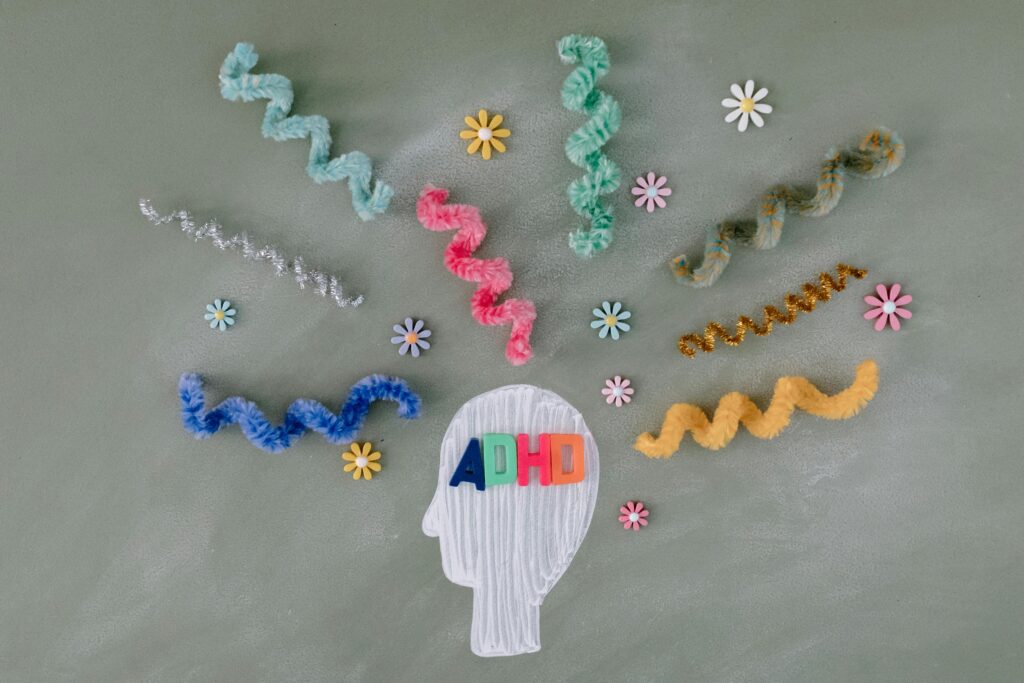Imagine your little one being overwhelmed by big emotions that they can’t quite comprehend, resulting in a flurry of tears, screams, and uncontrollable behaviour. It’s a scenario that’s all too familiar for parents of children with Autism Spectrum Disorder (ASD) and Attention Deficit Hyperactivity Disorder (ADHD). These meltdowns are often more than just temper tantrums; they are manifestations of overwhelming emotions that children with ASD and ADHD struggle to manage. But what if there was a way to transform these meltdowns into milestones? That is where neurofeedback therapy (NF) comes in. NF, as a complementary ADHD therapy in Singapore, can lead to better outcomes for children with ADHD and ASD. Read on to find out more about NF, what it entails, and how it can help children achieve better emotional regulation and focus over time.
What is Neurofeedback Therapy?
Neurofeedback therapy is a non-invasive, drug-free approach that uses a real-time brain activity monitoring and feedback system to train individuals on how to self-regulate their brainwaves.
The therapy process usually begins with a qEEG assessment session, where the trainee wears a cap with sensors that measure brain activity, a process that takes about two hours to complete. The analysis of the qEEG data allows therapists to derive more targeted training protocols.
During NF training, one or two sensors will be placed on the trainee’s scalp to pick up the brainwave signals. The trainee will then engage in activities similar to computer games. To continue playing the game, the trainee must maintain specific brainwave patterns. Furthermore every time a trainee is able to sustain a desirable brainwave pattern they will be rewarded with a point, no points will be rewarded if the brainwaves deviate from the target. The brain will pick up these reward signals, and will try to figure out how to reproduce these patterns so that it can get rewarded again, effectively learning and adapting in the process.
Understanding ASD and ADHD

Children with ASD and ADHD often struggle with emotional regulation, a skill that allows us to recognise, understand, and appropriately manage our feelings. Triggered by sensory overload, frustration, or changes in routine, this emotional dysregulation often results in outbursts. These meltdowns often have a profound impact on a child’s development and social interactions. They can not only disrupt learning opportunities, but also strain relationships with peers and family members, contributing to a negative self-image.
ADHD Treatment in Singapore: How Can Neurofeedback Therapy Help?
Neurofeedback therapy can help regulate the brain activity associated with emotional balance, focus, and attention. By providing feedback on brainwave patterns, children can learn to control their brain activities leading to better self regulation.
Key Benefits
Reduced frequency and intensity of meltdowns
Neurofeedback helps children learn how to calm their minds, reducing the frequency and intensity of meltdowns. This means fewer disruptive episodes and a more peaceful environment at home and school.
Better communication and improved ability to express needs
Neurofeedback therapy can improve brain function related to communication, making it easier for children to express their needs and interact socially. Improved communication skills can lead to stronger relationships with peers and family members. NF can be successfully incorporated as part of autism therapy in Singapore.
Improved focus and attention
Neurofeedback can help improve focus and attention, which is particularly beneficial for children with ADHD. Better focus can lead to improved academic performance and a more positive attitude towards learning. When incorporated as part of a treatment plan for ADHD therapy in Singapore, NF can help children achieve their desired academic and social milestones.
Reduced stress and anxiety
Neurofeedback therapy can also help alleviate the stress and anxiety commonly associated with difficulties in focusing. This creates a more conducive learning environment, making it a much more promising complementary therapy option as part of ADHD treatment in Singapore.
Reduced impulsivity
Neurofeedback therapy is a promising approach for managing impulsivity, particularly in children with ADHD. This therapy can help reduce impulsive behaviours, such as rash decision making or taking actions without considering the consequences. By training the brain to develop better self-regulation and control, children learn to pause and think before acting, leading to improved focus and decision-making skills.

ASD Therapy in Singapore: Finding a Qualified NF Therapist
To achieve the best results, it’s crucial to find a qualified neurofeedback therapist in Singapore. Look for therapists with certifications and experience working with children diagnosed with ASD and ADHD. Make sure they are affiliated with reputable neurofeedback associations and have a proven track record of success.
Credentials
A trusted therapist should possess qualifications in psychology, educational psychology, or related healthcare fields such as chiropractic or occupational therapy, together with a certification in NF training.
Seek recommendations
Ask for referrals from paediatricians, psychologists, or other healthcare providers. Local support groups and online forums can also offer valuable insights from other parents.
Talk to potential therapists
Schedule consultations to discuss their approach to neurofeedback. Ask about their methods, experience with children, and progress measurements.
Inquire about treatment plans
A qualified therapist should be able to explain how they will tailor neurofeedback sessions to your child’s unique challenges. Discuss the expected duration of treatment and any additional support they may offer.
Check reviews and testimonials
Look for reviews or testimonials from other parents who have worked with the therapist. This can shed light on their effectiveness and overall experience.
Evaluate comfort and rapport
It’s essential that your child feels comfortable with the therapist. A positive rapport can significantly enhance the therapeutic process, so consider how your child interacts with the therapist during the initial meetings.
Explore Neurofeedback Therapy with Spectrum Learning
Helping your child thrive despite the challenges of ASD and ADHD is possible with the right support. Whether you are exploring complementary therapies for ASD treatment in Singapore or looking to supplement your child’s ADHD treatment in Singapore, neurofeedback therapy can help.
Neurofeedback therapy offers a non-invasive, drug-free approach to improving brain function and emotional regulation. Working with an experienced neurofeedback therapist at Spectrum Learning can help your child better manage their meltdowns, improve their focus, and reach important developmental milestones. If you believe your child could benefit from neurofeedback therapy, give us a call to schedule a consultation. We are here to answer every question and accompany you and your child every step of the way.
Disclaimer: This blog post is intended for informational purposes only and does not constitute medical advice.

